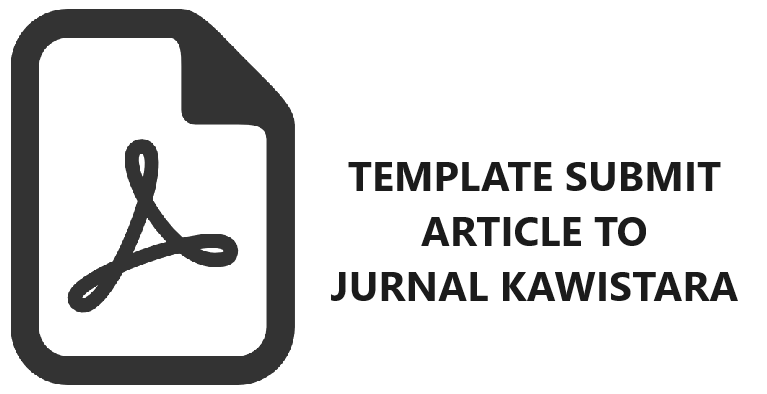Persepsi Risiko Bencana Pada Mahasiswa di Kota Padang Ditinjau dari Pengalaman dan Variabel Demografis
Fajar Ruddin(1*), Pratiwi Nurhabibi(2), Boni Saputra(3)
(1) King Saud University, Riyadh
(2) Program Studi Ilmu Administrasi Negara Universitas Negeri Padang
(3) Program Studi Ilmu Administrasi Negara Universitas Negeri Padang
(*) Corresponding Author
Abstract
Keywords
Full Text:
PDFReferences
Alsharawy, A., Spoon, R., Smith, A., dan Ball, S. 2021. Gender Differences in Fear and Risk Perception During The COVID-19 Pandemic. Frontiers in Psychology, 12:689467. https://doi.org/10.3389/fpsyg.2021.689467
Badan Nasional Penanggulangan Bencana. 2012. Pedoman Penyelenggaraan Latihan Kesiapsiagaan Penanggulangan Bencana. BNPB. Jakarta.
Badan Penanggulangan Bencana Daerah. 2012. Rencana Kontinjensi Menghadapi Bencana Tsunami Provinsi Sumatera Barat. BPBD Sumatera Barat. Padang.
Birkholz, S., Muro, M., Jeffrey, P., dan Smith, H. M. 2014. Rethinking the Relationship Between Flood Risk Perception and Flood Management. Science of the Total Environment, 478: 12–20. https://doi.org/10.1016/j.scitotenv.2014.01.061
Bronfman, N.C., Cisternas, P.C., López-Vázquez, E. dan Cifuentes, L.A. 2016. Trust and Risk Perception of Natural Hazards: Implications for Risk Preparedness in Chile. Natural Hazards, 81(1): 307-327.
Bourque, L. B., Regan, R., Kelley, M. M., Wood, M. W., Kano, M., dan Mileti, D. S. 2013. An Examination of the Effect of Perceived Risk on Preparedness Behavior. Environment and Behavior, 45(5), 615–649. doi: 10.1177/0013916512437596.
Bubeck P, Botzen W. J., dan Aerts J. C. 2012. A Review of Risk Perceptions and Other Factors that Influence Flood Mitigation Behavior. Risk Anal, 32(9): 1481-1495. https://doi:10.1111/j.1539-6924.2011.01783.x
Burningham, K., Fielding, J. and Thrush, D., 2008. ‘It'll never happen to me’: understanding public awareness of local flood risk. Disasters, 32(2): 216-238.
Ho, M.-C., Shaw, D., Lin, S., dan Chiu, Y.-C. 2008. How Do Disaster Characteristics Influence Risk Perception?. Risk Analysis, 28: 635-643. https://doi.org/10.1111/j.1539-6924.2008.01040.x
Hung, H.V., Shaw, R. and Kobayashi, M., 2007. Flood Risk Management for The RUA of Hanoi: Importance of Community Perception of Catastrophic Flood Risk in Disaster Risk Planning. Disaster Prevention and Management, 16(2): 245-258. https://doi.org/10.1108/09653560710739568
Kellens, W., Terpstra, T. and De Maeyer, P. 2013. Perception and Communication of Flood Risks: A Systematic Review of Empirical Research. Risk Analysis, 33: 24-49. https://doi.org/10.1111/j.1539-6924.2012.01844.x
Kung, Y.-W., dan Chen, S.-H. 2012. Perception of Earthquake Risk in Taiwan: Effects of Gender and Past Earthquake Experience. Risk Analysis, 32: 1535-1546. https://doi.org/10.1111/j.1539-6924.2011.01760.x
Lee, T., Markowitz, E., Howe, P., Ko, C-Y., dan Leiserowitz, A. 2015. Predictors of Public Climate Change Awareness and Risk Perception Around the World. Nature Clim Change, 5: 1014–1020. https://doi.org/10.1038/nclimate2728
Leiserowitz, A. 2006. Climate Change Risk Perception and Policy Preferences: The Role of Affect, Imagery, and Values. Climatic Change, 77: 45–72. https://doi.org/10.1007/s10584-006-9059-9
Mızrak, S. dan Aslan, R. (2020), Disaster Risk Perception of University Students. Risks, Hazards and Crisis in Public Policy, 11: 411-433. https://doi.org/10.1002/rhc3.12202
Nurhabibi, P., Saputra, B., Ruddin, F. 2020. Perception of The Tsunami and Its Correlation with Student Preparedness at Universitas Negeri Padang. Proceedings of the International Conference on Public Administration, Policy and Governance (ICPAPG 2019). Atlantis Press. https://doi.org/10.2991/aebmr.k.200305.204
O'Neill, E., Brereton, F., Shahumyan, H., dan Clinch, J.P. 2016. The Impact of Perceived Flood Exposure on Flood-Risk Perception: The Role of Distance. Risk Analysis, 36: 2158-2186. https://doi.org/10.1111/risa.12597
Peraturan Kepala Badan Nasional Penanggulangan Bencana Nomor 02 Tahun 2012 Tentang Pedoman Umum Pengkajian Risiko Bencana.
Pangkalan Data Pendidikan Tinggi. 2021. Universitas Negeri Padang. https://pddikti.kemdikbud.go.id/data_pt/MTc4NEI5MjctMzQ3QS00MjVELThEQ0YtN0NFOEZENEUwMDAy
Prabhakar, S. V. R. K., Srinivasan, A., dan Shaw, R. 2009. Climate Change and Local Level Disaster Risk Reduction Planning: Need, Opportunities and Challenges. Mitigation and Adaptation Strategies for Global Change, 14 (1): 7–33. https://doi.org/10.1007/s11027-008-9147-4
Qasim, S., Khan, A. N., Shrestha, R. P., dan Qasim, M. 2015 Risk Perception of The People in The Flood Prone Khyber Pukhthunkhwa Province of Pakistan. International Journal of Disaster Risk Reduction, 14(4), 373-378. https://doi.org/10.1016/j.ijdrr.2015.09.001.
Ruin, I., Gaillard, J-C., dan Lutoff, C. 2007. How to Get There? Assessing Motorists’ Fash Food Risk Perception on Daily Itineraries. Environ Hazards, 7(3): 235–244.
Schmidt, M., 2004. Investigating Risk Perception: A Short Introduction, Chapter 3. Loss of Agro-Biodiversity in Vavilov Centers, with a Special Focus on the Risks of Genetically Modified Organisms (GMOs). Unpublished Dissertation. University of Natural Resources and Applied Life Sciences, Vienna, Austria.
Simms, J. L., Kusenbach, M., dan Tobin, G. A. 2013. Equally Unprepared: Assessing the Hurricane Vulnerability of Undergraduate Students. Weather, Climate, and Society, 5(3): 233–43. https://doi.org/10.2307/24907522.
Solihin, A., Syahbana, D. K., dan Supartoyo. 2008. Peta Kawasan Rawan Bencana Gempabumi Lembar Padang, Sumatera. Pusat Vulkanologi dan Mitigasi Bencana Geologi. Jakarta.
Suprapto. 2015. Analisis Kesiapsiagaan Masyarakat Kota Padang dalam Menghadapi Bencana Alam. Jurnal Dialog Penanggulangan Bencana, 8(2): 116-127.
Tekeli-Yesil, S., Dedeoglu, N., Braun-Fahrlaender, C., dan Tanner, M. 2011. Earthquake Awareness and perception of Risk Among The Residents of Istanbul. Natural Hazards, 59, 427–446. https://doi.org/10.1007/s11069-011-9764-1
Terpstra T (2011) Emotions, trust, and perceived risk: affective and cognitive routes to flood preparedness behavior. Risk Anal, 31: 1658–1675.
Tsaqib, H. N., Rizki, M. N., Ghodi, R., Maulana, M. R., Waluyo, S. A., Fadlia, S. Z. 2020. Studi Komparatif Tingkat Pengetahuan Perubahan Iklim pada Mahasiswa Rumpun Sosial-Humaniora dan Rumpun Sains-Teknologi di Universitas Indonesia. Jurnal KSM Eka Prasetya UI, 2(2): 1-16.
UNISDR. 2009. UNISDR Terminology on Disaster Risk Reduction 2009; United Nations International Strategy for Disaster Reduction: Geneva. Switzerland.
Van der Linden, S. 2015. The Social-psychological Determinants of Climate Change Risk Perceptions: Towards a Comprehensive Model. J. Environ. Psychol. 41: 112–124.
Wachinger, G., Renn, O., Begg, C., dan Kuhlicke, C. 2013. The Risk Perception Paradox-implications for Governance and Communication of Natural Hazards. Risk Analysis, 33(6), 1049–1065. https://doi.org/10.1111/j.1539-6924.2012.01942.x
Weber, E.U. 2016. What Shapes Perceptions of Climate Change? New Research Since 2010. WIREs Clim Change, 7: 125-134. https://doi.org/10.1002/wcc.377
World Health Organization. 2008. Global Assessment of National Health Sector Emergency Preparedness and Response. WHO. Geneva.
Wusana, S. W., dan Hidayat, R. 2017. Persepsi Resiko Bencana Alam Dditinjau dari Sentralitas Jaringan Informasi Kebencanaan. Jurnal Ilmu Perilaku, 1(2): 68-80.
Yudhvir. 2014. Role of Media in Disaster Management. Asian Journal of Multidimensional Research, 3(5): 1-6.
Article Metrics
Refbacks
- There are currently no refbacks.
Copyright (c) 2022 Fajar Ruddin

This work is licensed under a Creative Commons Attribution-ShareAlike 4.0 International License.
Jurnal Kawistara is published by the Graduate School, Universitas Gadjah Mada.











